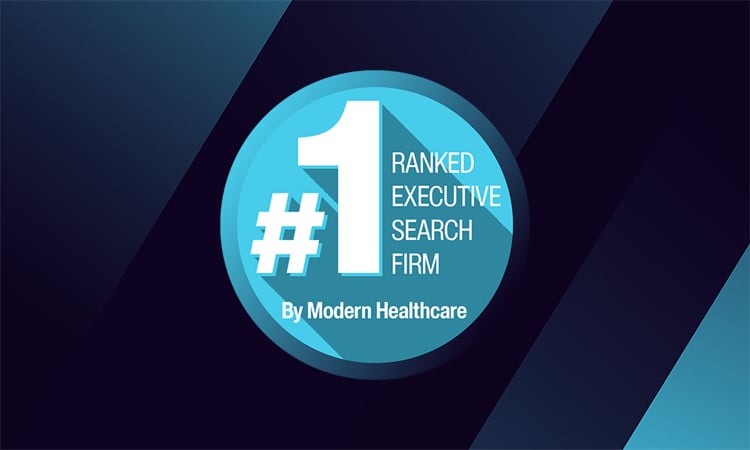
Strengthening Your Clinical Team Through Effective Leadership Techniques
Leadership plays an important role in modern healthcare. Clinical leaders, from Chief Medical Officers to Medical Directors, are on the front lines, tasked with ensuring their teams are motivated, productive, and retained in a demanding industry.
Boosting morale and enhancing retention are important to cultivating a resilient and dedicated clinical team. This guide outlines powerful strategies that clinical leaders can implement to create a thriving work environment that not only retains talent but also elevates patient care.
Why Retention Strategies Are Important
Retention strategies are essential in maintaining a stable and efficient clinical team. High turnover rates can disrupt patient care, increase operational costs, and lower team morale.
Implementing effective retention strategies helps leaders foster a supportive workplace environment, ultimately leading to improved patient outcomes and enhanced team performance. By focusing on retention, clinical leaders can ensure continuity in care delivery and build a collaborative team atmosphere.
The Role of Leadership in Boosting Morale
Leadership sets the tone for the clinical team. A leader who prioritizes open communication, recognizes achievements, and fosters professional development creates a positive work culture.
When team members feel valued and heard, morale increases, leading to higher job satisfaction and reduced turnover. Leaders can boost morale by actively engaging with their teams, addressing concerns promptly, and celebrating successes, big and small.
Creating an Inclusive and Supportive Workplace
An inclusive workplace is one where all team members feel respected and valued, regardless of their background or position. Clinical leaders can promote inclusivity by fostering a diverse workforce, encouraging collaboration, and providing equal opportunities for growth.
Creating a supportive environment where team members feel safe to express their ideas and concerns leads to greater job satisfaction and commitment to the organization.
Implementing Effective Communication Channels
Effective communication is vital for any successful clinical team. Leaders should establish clear and open channels of communication to ensure that team members are informed, involved, and engaged.
Regular team meetings, feedback sessions, and open-door policies encourage transparency and build trust. By actively listening and responding to team feedback, leaders can address issues early and prevent potential conflicts.
Encouraging Professional Development and Growth
Providing opportunities for professional development is a key retention strategy. Clinical leaders can support their teams by offering training programs, workshops, and opportunities for career advancement.
Encouraging continuous learning not only enhances team skills but also shows a commitment to their growth and success. By investing in their team's development, leaders build a more capable and motivated workforce.
Recognizing and Rewarding Achievements
Recognition and rewards are powerful tools for boosting morale. Acknowledging team members' contributions and achievements can significantly impact their job satisfaction and motivation.
Leaders should implement a recognition program that celebrates individual and team successes, whether through verbal praise, awards, or other incentives. Regularly recognizing and rewarding achievements helps to reinforce positive behaviors and fosters a culture of appreciation.
Building Strong Team Relationships
Strong relationships within the clinical team are crucial for effective collaboration and patient care. Leaders should encourage team-building activities and create opportunities for team members to connect and bond outside of work.
By fostering a sense of camaraderie and trust, leaders can enhance team dynamics and improve overall performance. Building strong relationships creates a supportive environment where team members are more likely to support each other and work collaboratively.
Promoting Work-Life Balance
Work-life balance is essential for maintaining team well-being and productivity. Clinical leaders should advocate for policies that support flexible scheduling, time off, and employee wellness programs.
By promoting a healthy work-life balance, leaders demonstrate their commitment to their team's well-being, reducing burnout and increasing job satisfaction. Supporting work-life balance helps to retain valuable team members and creates a more sustainable work environment.

Addressing Burnout and Mental Health
Burnout is a significant concern in the healthcare industry, affecting both team morale and patient care. Leaders must proactively address burnout by providing resources and support for mental health.
Offering counseling services, stress management programs, and promoting a culture of self-care can help mitigate burnout. By prioritizing mental health, leaders show their team that their well-being is a top priority, fostering a supportive and compassionate workplace.
Implementing Feedback and Continuous Improvement
Feedback is a valuable tool for growth and improvement. Leaders should establish a culture of continuous feedback where team members feel comfortable giving and receiving constructive input.
Regular feedback sessions allow leaders to identify areas for improvement and celebrate accomplishments. By encouraging feedback and implementing changes based on team input, leaders demonstrate their commitment to continuous improvement and innovation.
Leveraging Technology for Team Efficiency
Technology can enhance team efficiency and communication. Leaders should invest in tools and platforms that streamline processes and improve collaboration. Whether through electronic health records, communication apps, or project management software, technology can support the team's efforts and enhance patient care.
By leveraging technology, leaders can create a more efficient and connected team, leading to better outcomes and increased satisfaction.
Cultivating an Innovative Culture
Innovation is key to staying competitive in the healthcare industry. Clinical leaders should encourage their teams to think creatively and explore new ideas. Creating a culture of innovation involves providing resources, support, and freedom for experimentation. By fostering innovation, leaders can drive progress and improve patient care, while also engaging and motivating their teams.
Partner with B.E. Smith to Advance Your Career
Building a stronger clinical team through effective leadership requires a commitment to boosting morale and enhancing retention. By implementing the strategies outlined in this guide, clinical leaders can create a supportive and thriving work environment. Prioritizing communication, professional development, and work-life balance are key to retaining top talent and delivering exceptional patient care.
At B.E. Smith, we specialize in recruiting healthcare leaders and offer career opportunities in public, private, and academic facilities across the country. Connect with a recruiter today and we will assist you every step of the way.



